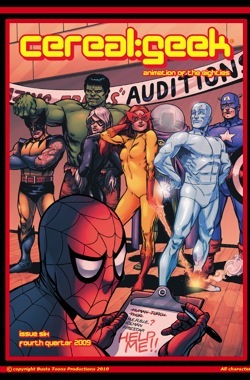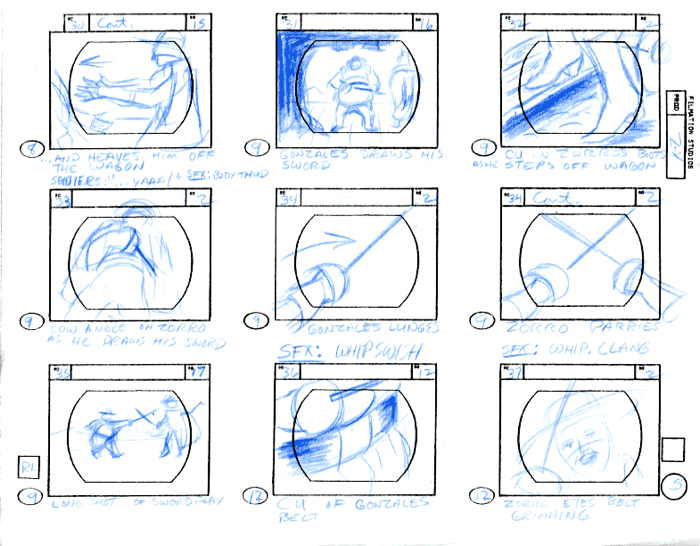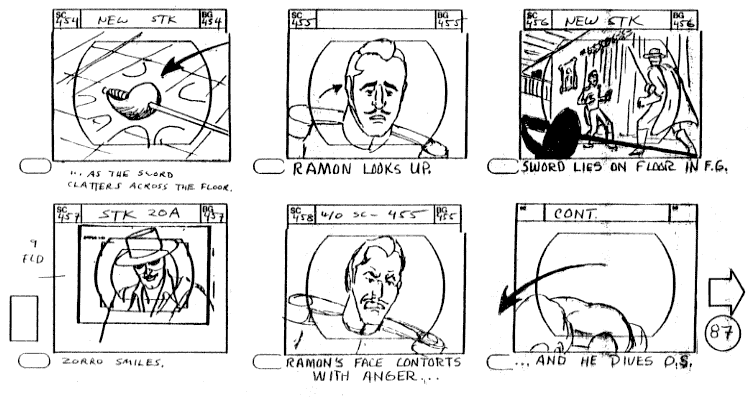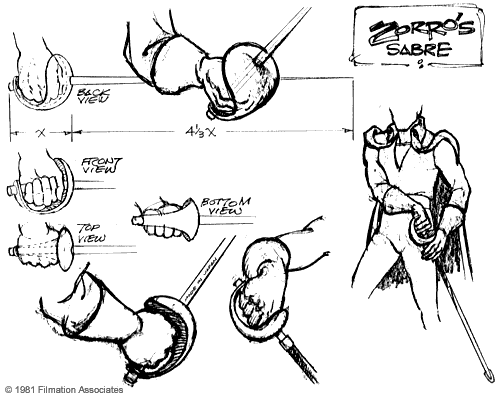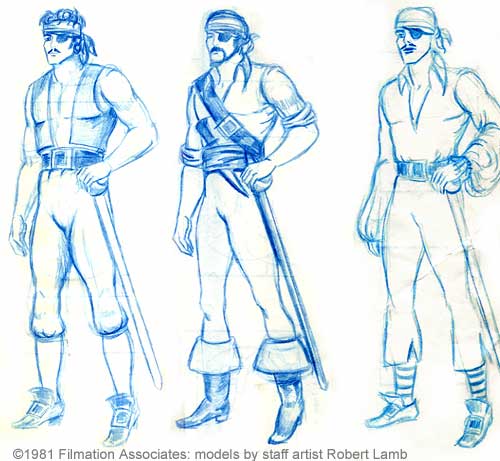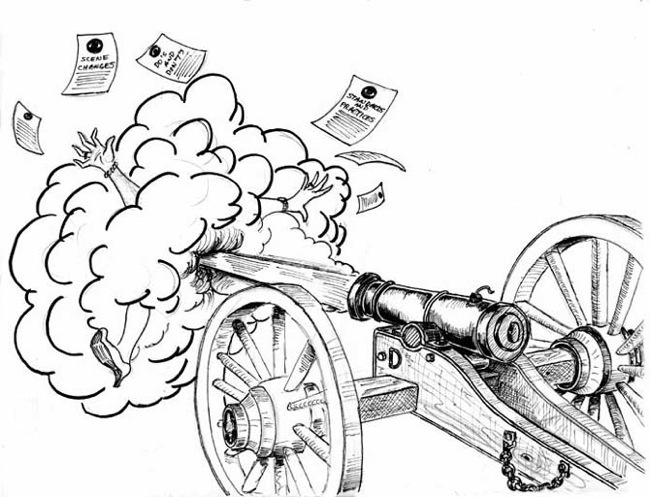Filmation Studios – The New Adventures of Zorro
1981 – My First Storyboards – “The Trap” and “Fort Ramon”
Featured in cereal:geek issue six
by James Eatock
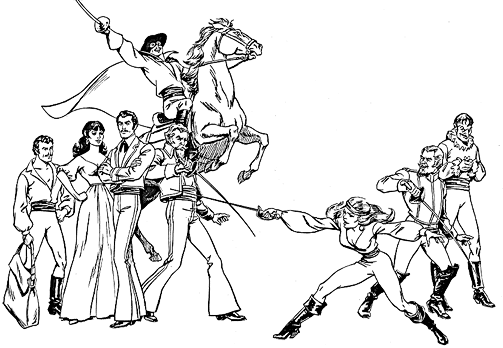
Zorro presentation art – copyright 1981 Filmation Associates
The New Adventures of Zorro was my first assignment at Filmation. Rich Fogel was my supervisor.
“The Trap”
I started by cleaning up Don Manuel’s storyboard roughs for “The Trap.” The experience was both exhilarating and intimidating. The story and the action were fun to stage and illustrate. My drawing ability was barely acceptable. I remember Don’s disappointment in my cleanups. I think he redrew some of my lesser panels which was probably most of them.
Storyboard roughs for “The Trap” by Robert Lamb – 1981
Rich Fogel let me try boarding a sequence in “The Trap” but it wasn’t used. Still it wasn’t too far off the final animation.
I learned as much as I could in that first board. As you can see below my cleanup was a bit uneven.
Storyboard cleanups for “The Trap” by Robert Lamb – 1981
“Fort Ramon”
My second Zorro story to board was “Fort Ramon.” Rich Fogel handed me the script and told me to board several pages. After editing and revising my roughs he said go ahead and clean them up. My jaw dropped. I had fully expected to be just cleaning up other artists work for a long time. Then I remembered I wasn’t hired from my drawing but for my ability to visualize a script. So though “The Trap” was the first show I worked on, “Fort Ramon” is actually the first show I boarded. (DISCLAIMER: Scripts were divided up among two or three board artists to meet deadlines. It wasn’t until He-Man and the Masters of the Universe that we got to board an entire script alone.)
The frustrations with the Standards and Practices censors harping on how weapons were used in the series provoked various retaliatory cartoons that we posted on our walls in the storyboard wing as a catharsis to relieve tension. This is mine.
At first I was disappointed to learn that Zorro would be sent overseas for animation production, but with Blackstar, Hero High, and Shazzam! all in production at the same time there was a real possibility we wouldn’t make our air-dates. However, instead of using other Asian animation producers, Filmation went with Tokyo Movie Shinsha, which had done Space Cobra and Lupin III at that time. When I saw the final Zorro product, I was very pleased.
My costume designs for Zorro as “Mate.”
Swords and Censors
I loved working on Zorro having grown up with the Disney tv series starring Guy Williams. I also loved sword fights and choreographing the fight scenes.
Use of weapons in children’s television was a very touchy subject in the 1980s. Guns were necessary in the Lone Ranger show but no one could be shot, other than shooting something out of someone’s hand. The implication was that the object was hit by the bullet not the villain’s hand. Trick shots that hit objects that then impeded the bad guys were acceptable. You could shoot things not people.
Network censors, known Standards and Practices, put restrictions on anything that could be construed as violent or easily imitated by children. They didn’t like the idea of guns or swords. However, Zorro had a guardian angel at CBS in the Saturday morning programming staff. He was a member of the 1976 American Olympic fencing team and enthusiastically supported CBS acquiring the series. What’s more, he became the rotoscope model for the stock animation which aided the authenticity of Zorro’s swordfighting scenes. I wish I knew his name to thank him for his contributions.
Zorro’s response to the network censors. Cartoon by Robert Lamb1981

